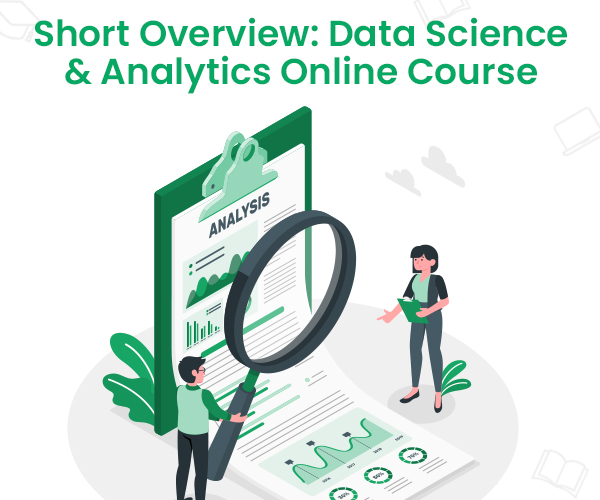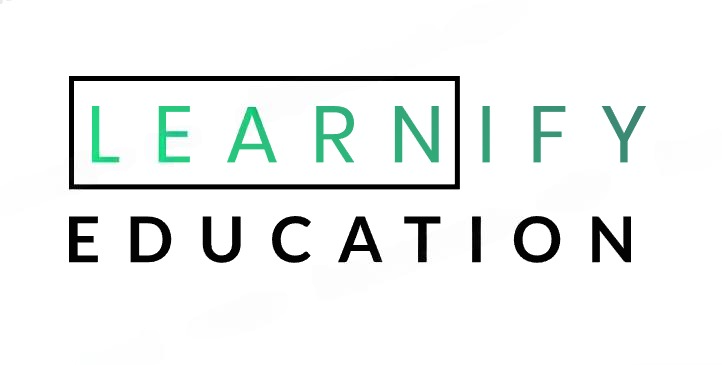Data Science
Uses scientific methods, algorithms, and systems to extract insights from data, blending statistics, computer science, and domain expertise.













In today’s digital era, data drives decision-making across industries. Data Science and Analytics have become critical fields, providing insights and strategies from vast datasets. An online course in these areas equips learners with essential skills and knowledge, offering flexibility for both professionals and students.
Data Science
Uses scientific methods, algorithms, and systems to extract insights from data, blending statistics, computer science, and domain expertise.
Data Analytics
Examines datasets to uncover patterns, correlations, and trends, informing decision-making through statistical techniques.
Comprehensive Curriculum
Covers data collection, cleaning, statistical analysis, machine learning, visualization, and big data technologies.
Flexibility
Study at your own pace, ideal for working professionals and those with other commitments.
Hands-on Learning
Practical projects and case studies for real-world experience.
Interactive Learning
Expert Instructors
Learn from industry professionals.
Certification
Enhance your resume and demonstrate expertise.
Career Advancement
Boost career prospects and open opportunities in finance, healthcare, marketing, and technology.
High Earning Potential
Data professionals are among the highest-paid in tech.
Versatility
Skills applicable across multiple fields.
Enrolling in an online Data Science and Analytics course empowers learners to analyze complex data, make informed decisions, and contribute to organizational success, paving the way for a rewarding career in a data-driven world.
| Aspect | Data Science | Data Analytics |
|---|---|---|
| Definition | The field involves using scientific methods, algorithms, and systems to extract knowledge and insights from structured and unstructured data. | The process of examining datasets to draw conclusions about the information they contain, typically focusing on past data to find patterns and insights. |
| Scope | Broader, encompassing data collection, cleaning, modeling, and interpretation. | Narrower, focusing on analyzing existing data to support decision-making. |
| Objective | To create predictive models and derive actionable insights for future trends. | To provide actionable insights and solve specific problems based on historical data. |
| Techniques Used | Machine learning, artificial intelligence, predictive modeling. | Statistical analysis, business intelligence, and descriptive analytics. |
| Tools and Languages | Python, R, SQL, Hadoop, Spark, TensorFlow. | SQL, Excel, Tableau, Power BI, SAS. |
| Nature of Work | Involves a significant amount of coding, statistical analysis, and handling large datasets. | More focused on generating reports, dashboards, and visualizations to support business decisions. |
| Skill Requirements | Requires strong programming skills, knowledge of machine learning algorithms, and statistical analysis. | Requires strong analytical skills, proficiency in data visualization tools, and a good understanding of statistical methods. |
| Outcome | Development of new algorithms and predictive models, innovation in data-driven solutions. | Insights and recommendations based on past data to improve business processes. |
| Industry Applications | Used in developing AI models, autonomous systems, personalized recommendations (e.g., Netflix, Amazon). | Used in business intelligence, financial analysis, marketing analysis, operational efficiency. |
| Career Roles | Data Scientist, Machine Learning Engineer, Research Scientist. | Data Analyst, Business Analyst, Business Intelligence Analyst. |

In a comprehensive Data Science and Analytics curriculum, students are introduced to a variety of subjects that provide a strong foundation in both theoretical and practical aspects of the field. Here are some of the key subjects typically covered in such programs:
These subjects collectively equip students with the necessary skills to excel in the field of Data Science and Analytics. By covering a broad range of topics, the curriculum ensures that graduates are well-prepared to tackle complex data challenges and contribute effectively to their organizations.

The syllabus for a Data Science and Analytics program is designed to cover a wide range of topics, ensuring that students gain comprehensive knowledge and skills in both theoretical and practical aspects. Below is a detailed syllabus outline:

The fees for Data Science and Analytics programs in India can vary depending on the institution, program level, and mode of delivery (online or on-campus). Below is an overview of the typical fee ranges for different types of programs in India:












